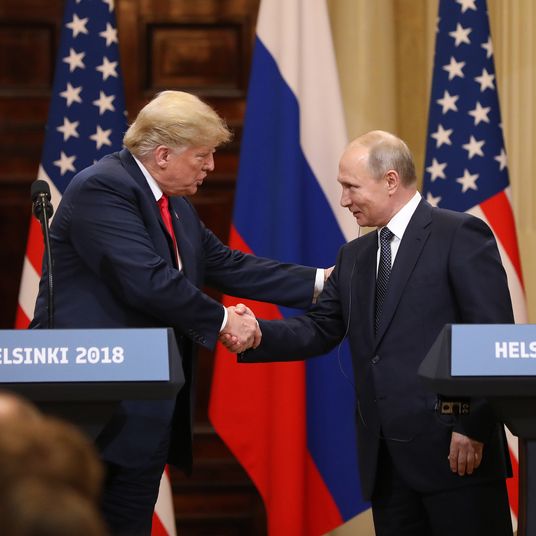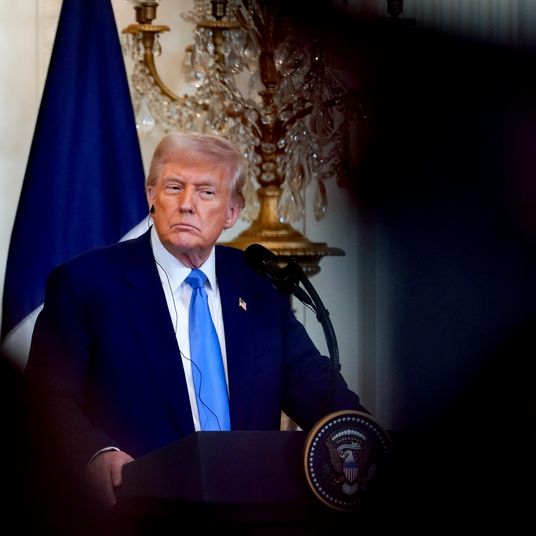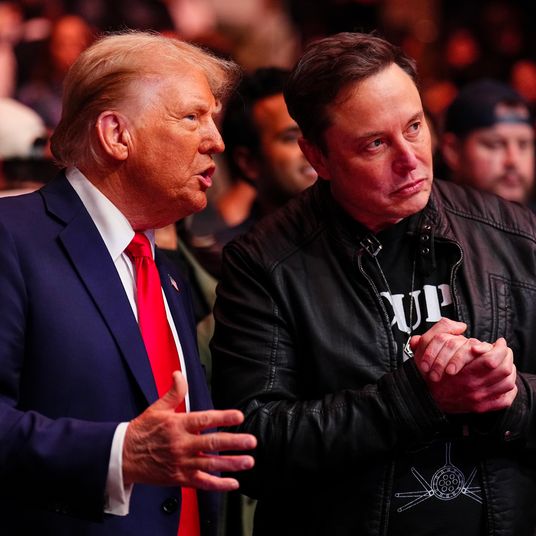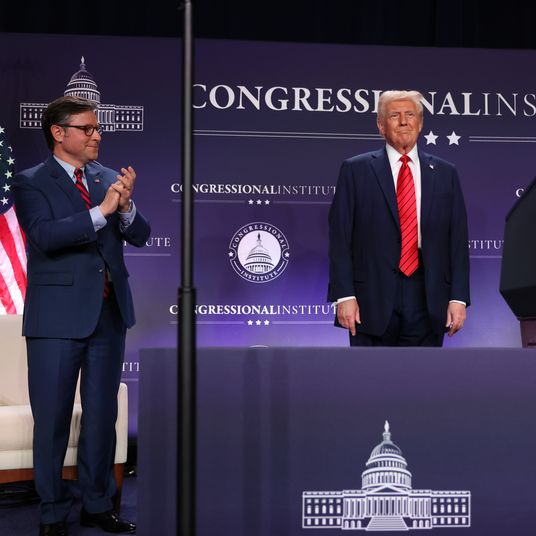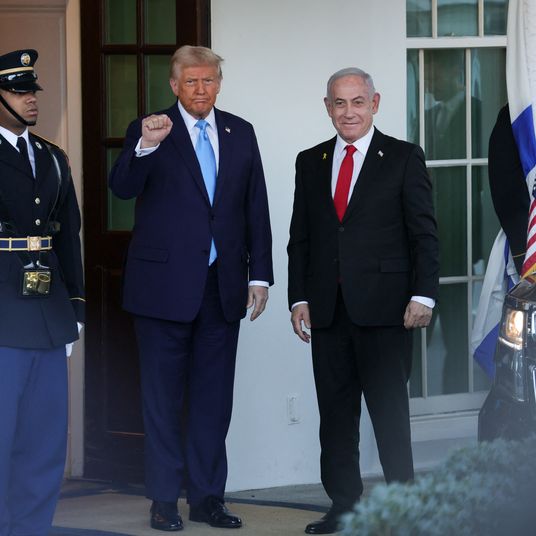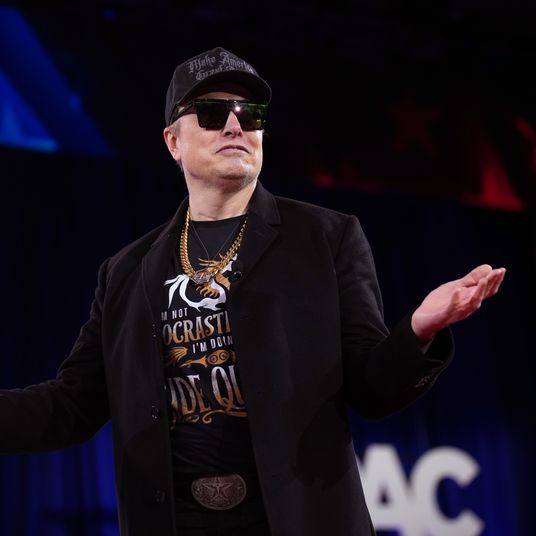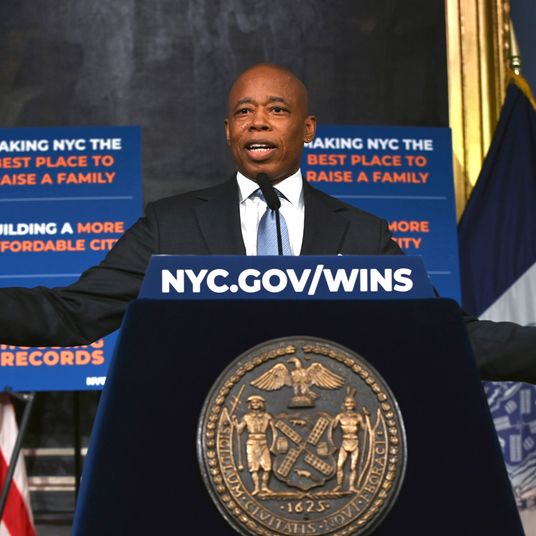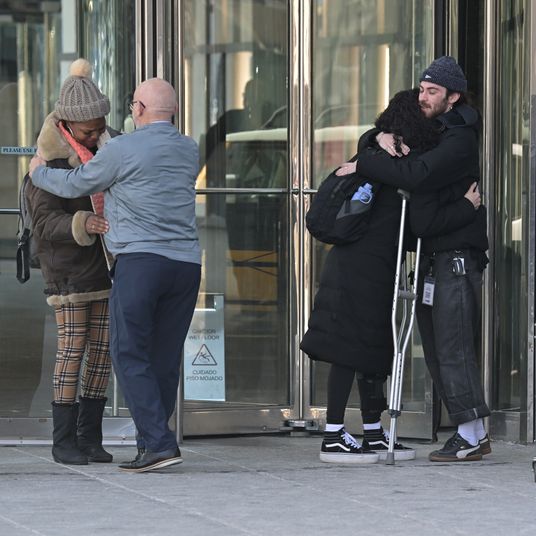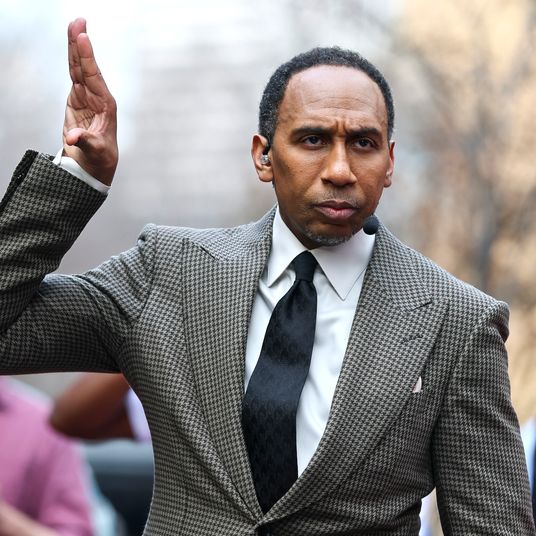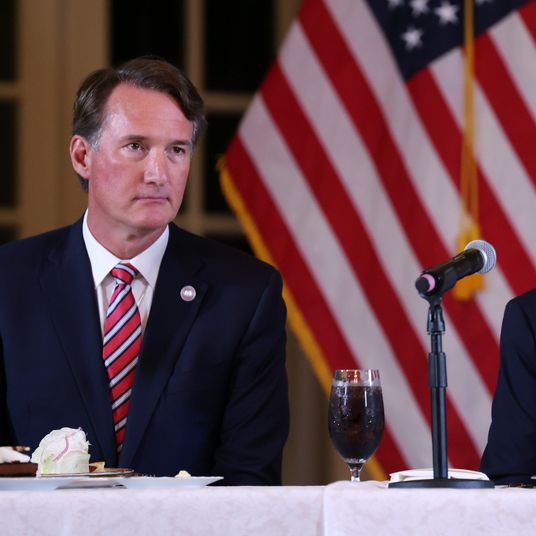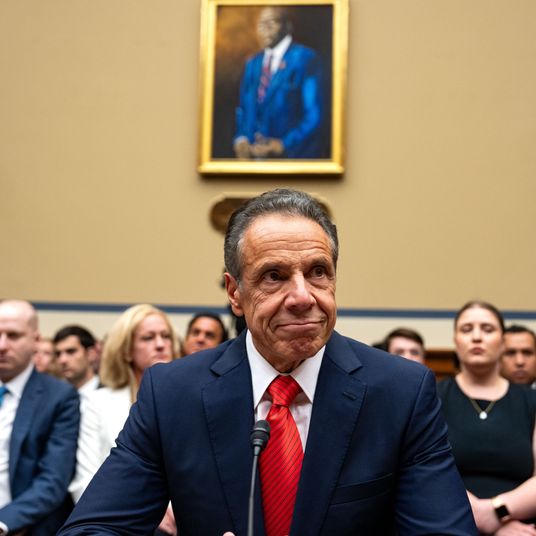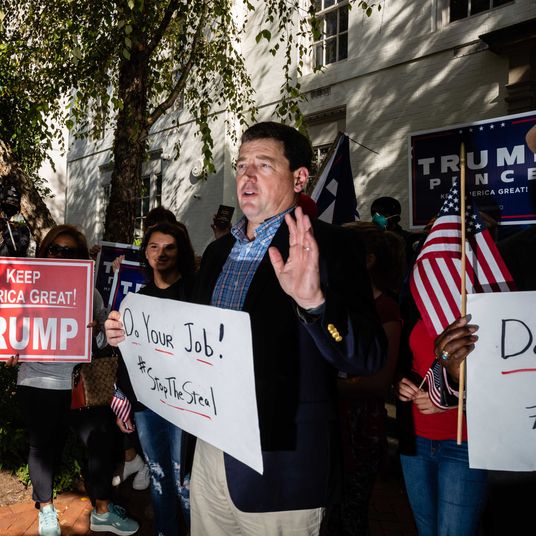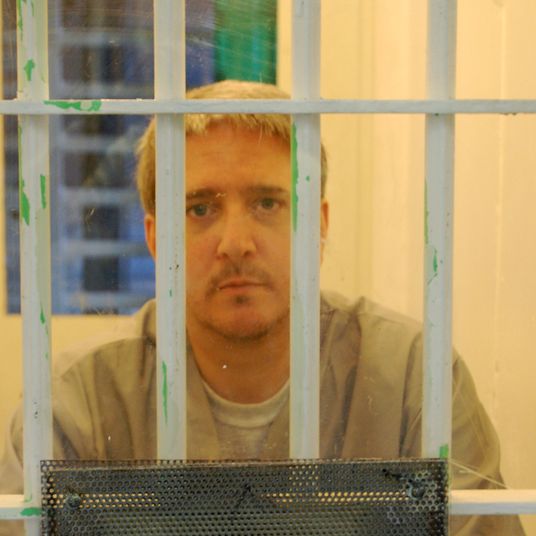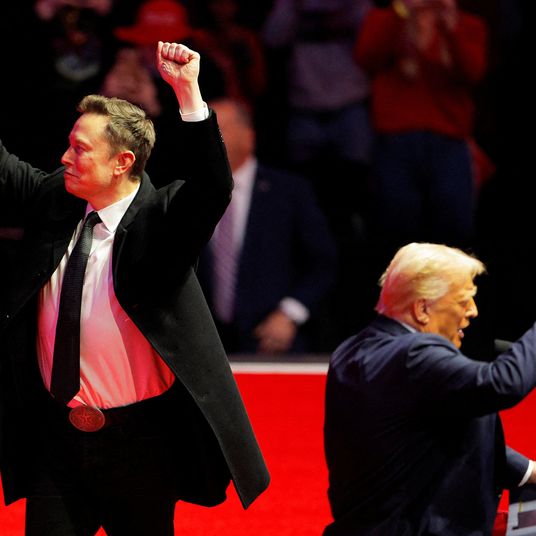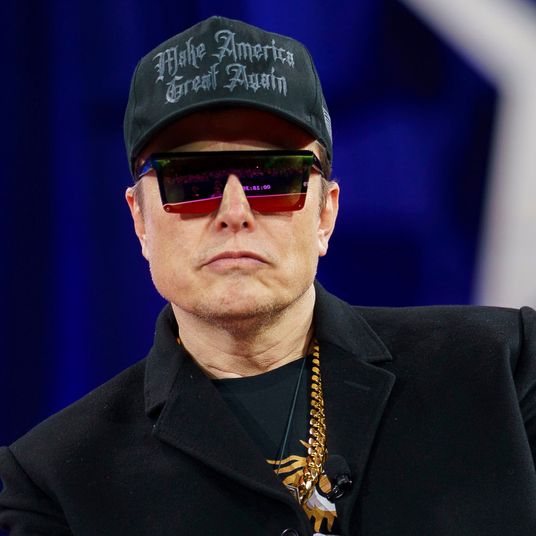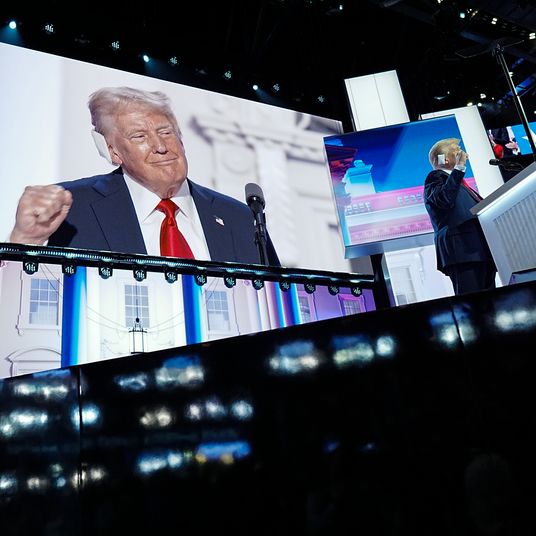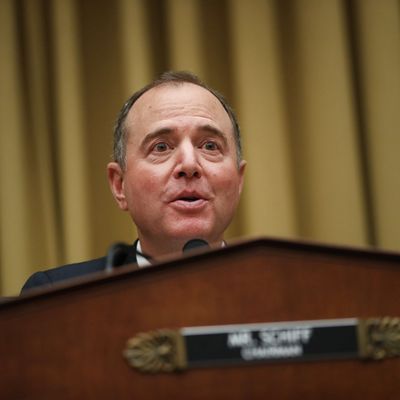
It’s unclear what regular folks will take away from today’s House hearings to gather testimony from former special counsel Robert Mueller. It got awfully murky at times, and certainly confusing to the uninitiated given the partisan Kabuki theater that led Democrats and Republicans to talk about entirely different things. And the biggest events may have been constituted by Mueller’s hesitant and unresponsive manner in the Judiciary Committee meeting, and a misunderstanding over a potentially explosive answer he gave in that first hearing suggesting he would have charged Trump criminally if he had been able to absent a Department of Justice guideline banning indictment of sitting presidents (at the beginning of the Intelligence Committee hearing, Mueller clarified that he had reached no conclusion at all about presidential criminality).
While the first hearing ultimately boiled down to Democrats stressing that Trump was not exonerated for obstruction of justice and Republicans stressing that he was not found culpable, the second hearing revolved less around legal distinctions than around facts about the whole story of Russian interference in the 2016 presidential election. And Intelligence Committee chairman Adam Schiff kicked off the hearing with probably the most effective presentation of any Democrat all day. Perhaps that’s because Schiff chose not to delve into legal terminology or leap into questionable assertions, but instead told a “story”:
Your report, for those who have taken the time to study it, is methodical and it is devastating, for it tells the story of a foreign adversary’s sweeping and systematic intervention in a close U.S. presidential election …
But your report tells another story as well. For the story of the 2016 presidential election is also a story about disloyalty to country, about greed, and about lies.
Schiff went through these dimensions of the “story” very deliberately, with these highlights. First, involving disloyalty:
Disloyalty to country. Those are strong words, but how else are we to describe a presidential campaign which did not inform the authorities of a foreign offer of dirt on their opponent, which did not publicly shun it, or turn it away, but which instead invited it, encouraged it, and made full use of it?
That disloyalty may not have been criminal. Constrained by uncooperative witnesses, the destruction of documents and the use of encrypted communications, your team was not able to establish each of the elements of the crime of conspiracy beyond a reasonable doubt, so not a provable crime, in any event. But, I think, maybe, something worse. A crime is the violation of a law written by Congress. But disloyalty to country violates the very obligation of citizenship, our devotion to a core principle on which our nation was founded, that we, the people, not some foreign power that wishes us ill, we decide, who shall govern, us.
Then Schiff documented the greed exhibited by Team Trump and its Russian friends:
[It’s a story] about a campaign chairman indebted to pro-Russian interests who tried to use his position to clear his debts and make millions. About a national security advisor using his position to make money from still other foreign interests. And about a candidate trying to make more money than all of them, through a real-estate project that to him, was worth a fortune, hundreds of millions of dollars, and the realization of a lifelong ambition — a Trump Tower in the heart of Moscow. A candidate who, in fact, viewed his whole campaign as the greatest infomercial in history.
Donald Trump and his senior staff were not alone in their desire to use the election to make money. For Russia, too, there was a powerful financial motive. Putin wanted relief from U.S. economic sanctions imposed in the wake of Russia’s invasion of Ukraine and over human rights violations. The secret Trump Tower meeting between the Russians and senior campaign officials was about sanctions. The secret conversations between Flynn and the Russian ambassador were about sanctions. Trump and his team wanted more money for themselves, and the Russians wanted more money for themselves, and for their oligarchs.
The lies were perhaps the most pervasive story, and are continuing:
Lies about a gleaming tower in Moscow and lies about talks with the Kremlin. Lies about the firing of FBI Director James Comey, and lies about efforts to fire you, Mr. Mueller, and lies to cover it up. Lies about secret negotiations with the Russians over sanctions and lies about WikiLeaks. Lies about polling data and lies about hush-money payments. Lies about meetings in the Seychelles to set up secret back channels, and lies about a secret meeting in New York Trump Tower. Lies to the FBI, lies to your staff, and lies to our committee. And lies to obstruct an investigation into the most serious attack on our democracy by a foreign power in our history.
That is where your report ends, Mr. Mueller, with a scheme to cover up, obstruct, and deceive every bit as systematic and pervasive as the Russian disinformation campaign itself, but far more pernicious since this rot came from within.
Yes, Schiff was followed by ranking committee Republican Devin Nunes, who told his own “story” involving an alleged FBI-Obama-Clinton-Russian conspiracy to investigate an innocent Trump campaign for nonexistent collusion, leading to the Mueller “witch hunt.” But you pretty much had to have already gone down a right-wing conspiracy-theory rabbit hole to follow, let alone give much credit to that story, depending as it did on facts far outside the purview of the Mueller investigation (as Mueller reminded Republicans repeatedly). Perhaps nothing that happened today will move hardened partisan positions on the sprawling saga that Mueller investigated. But while Nunes provided a tonic to his own troops, Schiff may have changed a few minds among those who didn’t see the big picture — or who didn’t understand the story — before.







